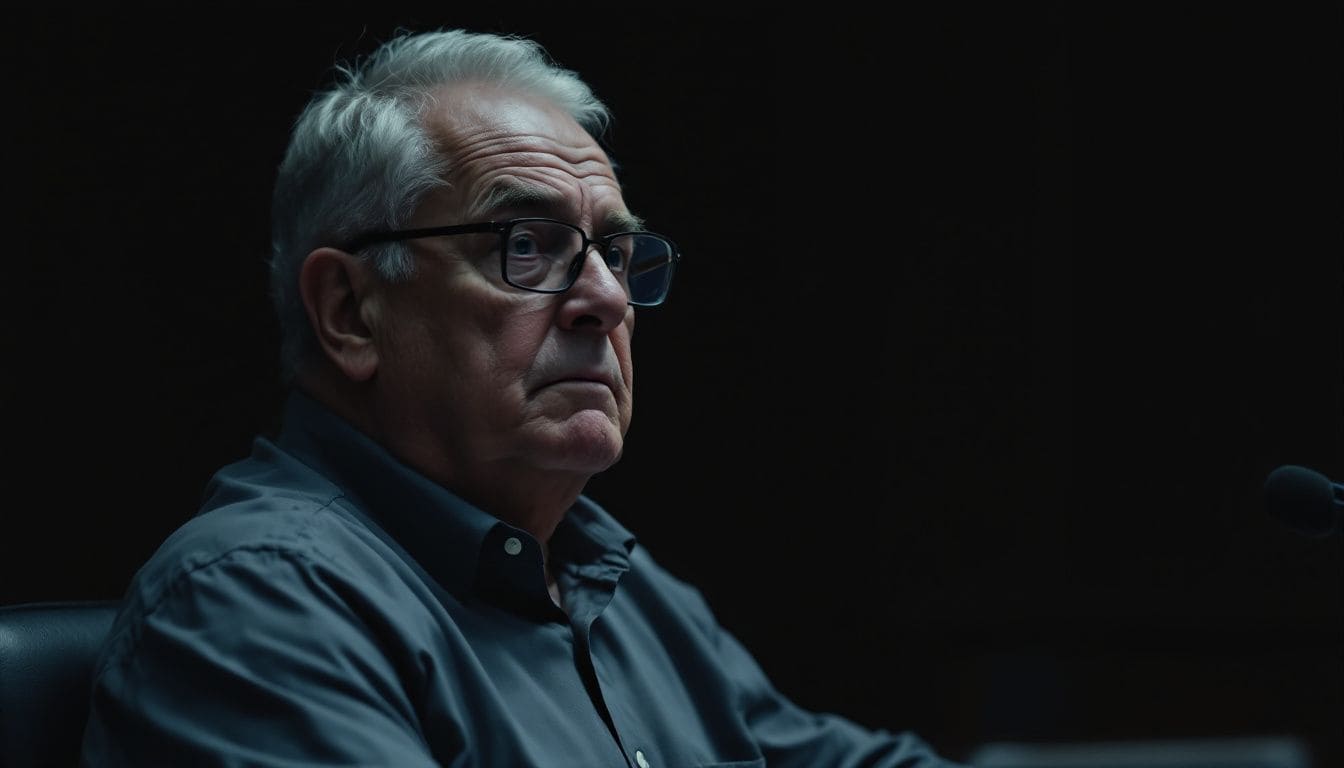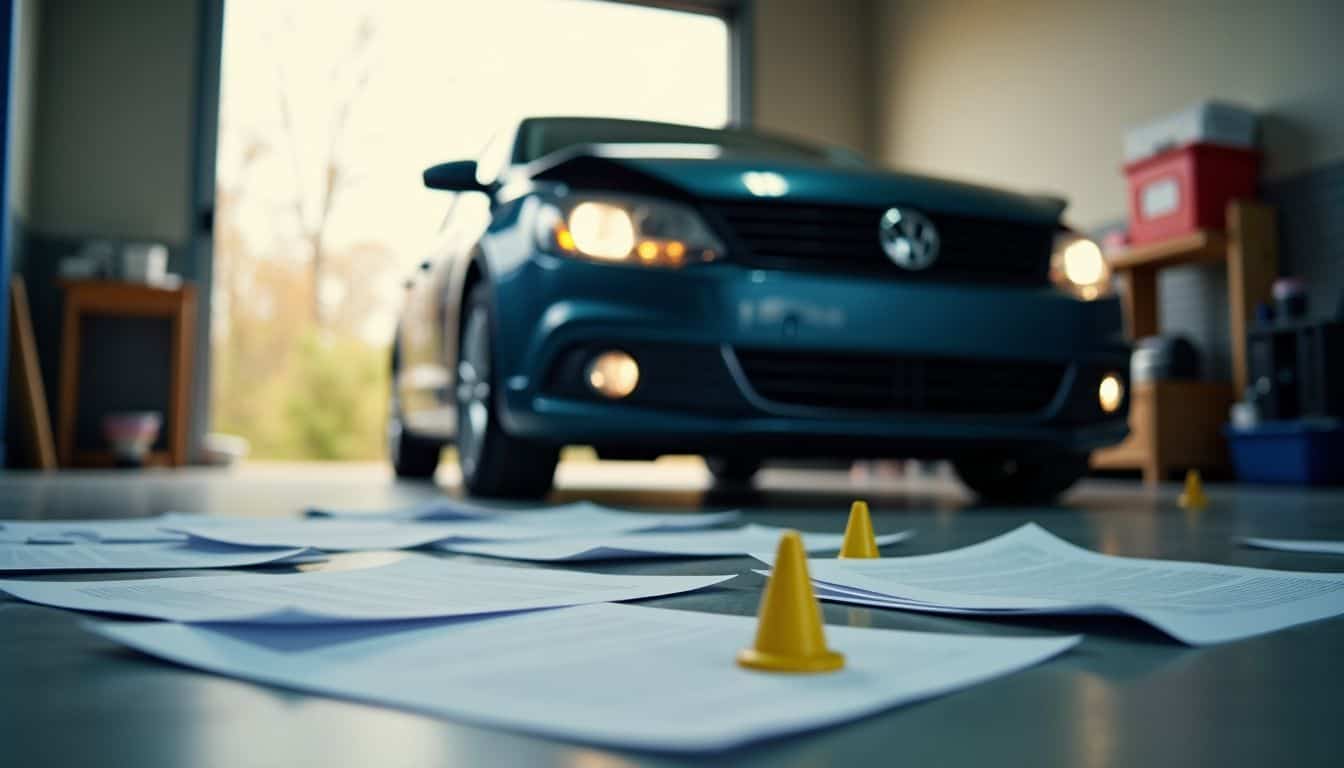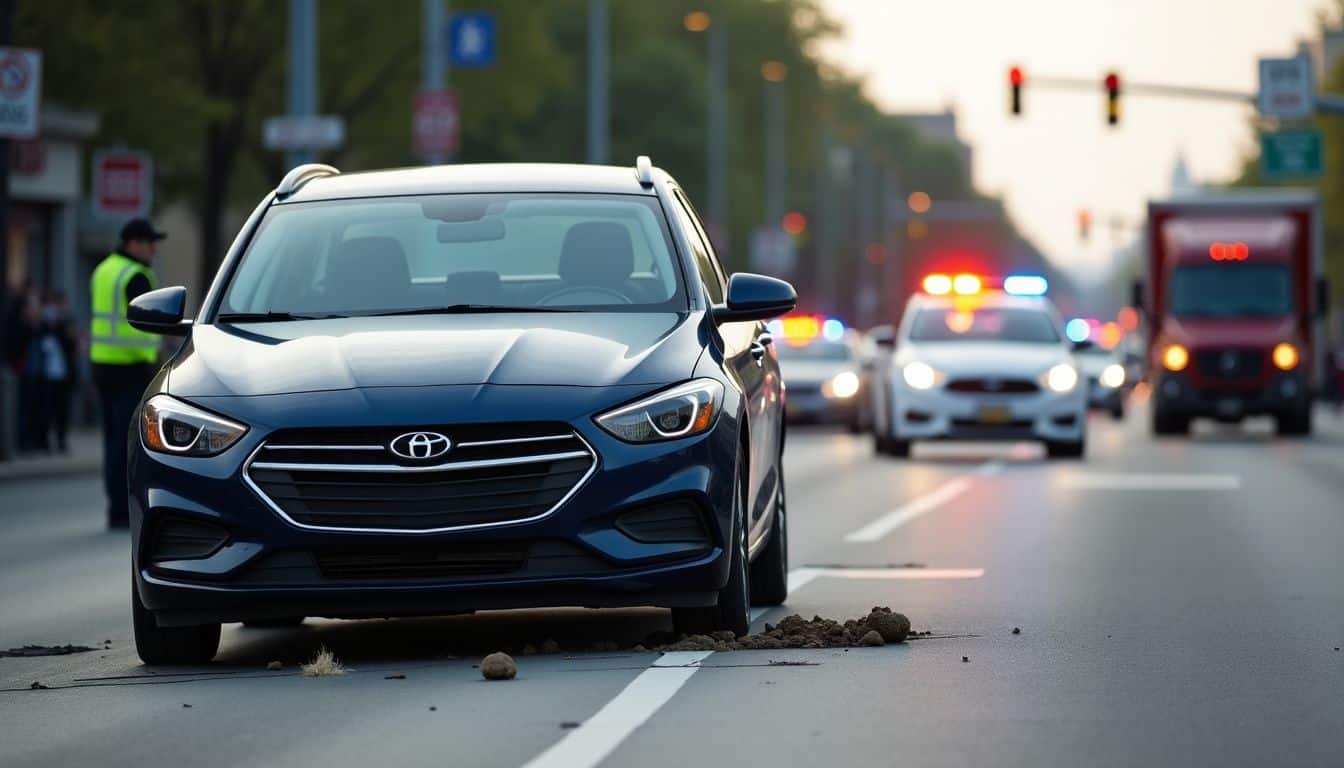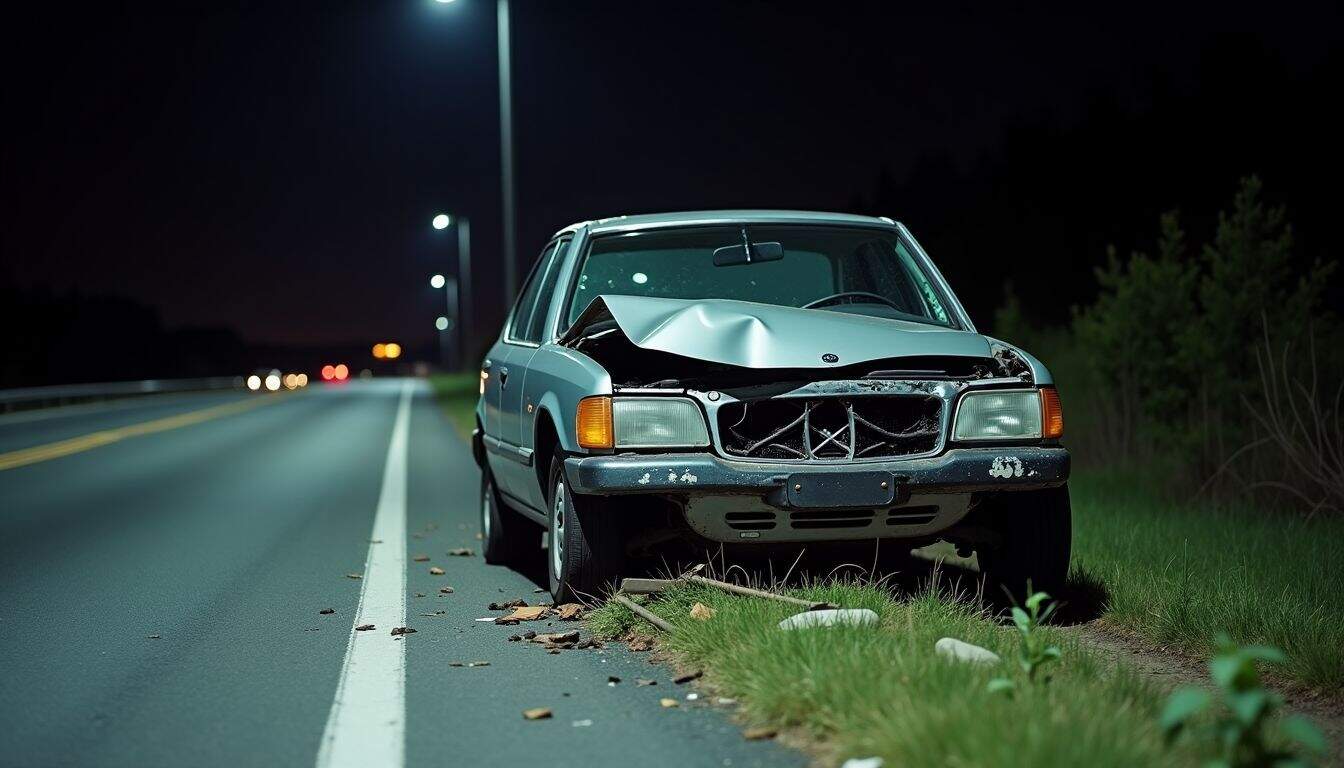Worried about whether your car accident will lead to a stressful courtroom battle? Most car accidents never end up in court—they usually settle before reaching trial. This guide explains clearly the five key factors that affect if your case settles or heads into litigation, helping you make smarter choices after an auto accident.
Discover exactly what decides your fate next.
Key Takeaways
Around 95 to 96% of car accident cases settle outside court—only 3 to 5% actually make it to trial.
Court cases usually happen because the two sides can’t agree on who caused the crash, the injuries are serious, or the insurance company offers a payout that’s simply too low to accept.
Taking the legal route involves several steps: filing a complaint, exchanging evidence, negotiating before trial, and, if needed, selecting a jury and receiving a final verdict.
You—not the insurance company—have the final say in deciding to take your case to court, though your lawyer will help you weigh the pros and cons.
Insurance providers typically start with lower offers, hoping you’ll accept less right away, instead of pushing back for the amount you truly deserve.
Table of Contents
How Often Do Car Accidents Go to Court?

Most car accidents never see the inside of a courtroom. Insurance companies prefer to settle claims quickly rather than pay for costly trials.
Most Claims Settle Out of Court

The statistics speak clearly—around 95-96% of car accident claims never go to trial. Insurance companies typically prefer settling these personal injury cases early, rather than chancing a courtroom showdown.
Years working as a claims adjuster taught me this firsthand: settlements save both sides significant amounts of time and money. Court battles rack up legal costs quickly, and lawsuits can drag on for months—or even years—while negotiated settlements usually finish much quicker.
Settlement offers certainty in an uncertain legal process.
Settling also means you get compensated faster. Trials involve complicated legal steps, slowing down the payment process considerably. According to data from the Bureau of Justice Statistics, a mere 3-5% of car accident cases ever reach a courtroom.
If you’re seriously hurt from an auto collision, you could need to file a car accident lawsuit to ensure a fair financial recovery.
Compensation for pain and suffering often gets settled faster in negotiations, without the long waiting periods associated with court procedures like discovery.
Factors Influencing Court Trials

Most car accident claims settle without drama—but sometimes, they end up in court. Here are the main reasons a simple negotiation can turn into a trial:
- Arguments over who caused the accident often lead to court action. Drivers might blame each other, and if the evidence doesn’t clearly show fault, a judge or jury must decide.
- Big-money claims can trigger trials. Insurance companies strongly resist payouts in cases worth hundreds of thousands, unlike smaller injury claims.
- Serious injuries, like traumatic brain damage or spinal injuries, frequently bring cases to trial. Future medical care costs are tough to guess accurately during settlement talks, leading to disagreements.
- Insurance policy limits can force a lawsuit. If your medical and financial losses exceed available insurance coverage, you might need a court case to get fair compensation.
- Clashing opinions from expert witnesses, such as accident reconstruction specialists or medical professionals, often push cases before a jury. Conflicting views leave juries to figure out who’s right.
- Sometimes, insurance companies offer far too little. Victims can’t cover medical bills or lost income with low settlement offers, making a lawsuit the necessary choice.
- Legal deadlines—called statutes of limitations—can pressure people into filing lawsuits. Negotiations may drag on until these deadlines approach, forcing court filings to protect your rights.
- Cases involving multiple drivers, companies, or government groups often see courtroom action. Many parties involved create complicated issues of liability, needing a court decision.
- Your lawyer’s courtroom skills make a difference. Lawyers known for winning trials tend to get stronger settlement offers because insurers want to avoid risky court battles.
- New evidence gathered during the discovery phase can alter your case. Documents, witness statements, or unexpected details might significantly strengthen or weaken your position.
Reasons a Car Accident Case Might Go to Court

Car accident cases head to court when the parties can’t agree on key issues. Disputes about who caused the crash, low settlement offers, and serious injuries often push cases before a judge.
Disputes Over Liability

Disputes over fault often push accident cases into court. Insurance companies regularly fight harder if blame isn’t clear. Your personal injury lawyer has to show that the other driver did not act with reasonable care.
Cases involving commercial vehicles frequently end up before a judge because businesses employ legal teams ready to challenge fault. Liability issues tend to become complicated in crashes with serious injuries or multiple cars involved.
Evidence becomes crucial in these court battles. Your lawyer collects police reports, witness accounts, and sometimes even accident scene reconstructions. Claims against the government can face extra hurdles, especially if road conditions or faulty traffic signals contributed to the crash.
If the other driver had no insurance, you could find yourself filing a lawsuit just to cover medical bills and lost wages. During discovery, both sides share and examine evidence closely—before a jury or judge finally decides who is truly responsible.
Inadequate Settlement Offers

After a car accident, insurance companies often give low settlement offers that don’t fully cover your real costs. Sure, they’ll pay for basic vehicle repairs—but ongoing hospital bills, lost wages, or pain from injuries? Those are usually left behind.
Lots of people get offers covering less than half their actual expenses. They feel stuck choosing between quick cash today, or holding out for the fair amount they deserve.
Medical bills from severe injuries add up quickly, sometimes thousands of dollars each day just for hospital stays alone.
An insurance company’s first offer is rarely their best offer – it’s simply their first attempt to close your case cheaply.
Receiving an offer that’s clearly too low can push your case into the courtroom. Insurance companies depend on you needing cash quickly and settling for less. They might even claim you’re partly to blame for the crash, or insist your injuries aren’t as bad as they really are.
A personal injury attorney can look over your settlement, collect evidence of your losses, and stand up for your right to fair compensation.
High-Value Claims

Car crashes causing severe harm often result in high-stakes claims, sometimes ending up in court. Insurance companies typically push back strongly to avoid large payouts, making negotiations tough and tense.
Serious injuries like spinal fractures, brain damage, or anything preventing you from working can bring claims worth tens of thousands—or even millions.
I once represented someone hurt badly in a truck collision, and medical expenses alone passed $150,000. The insurance provider dug in their heels, refusing to pay, until we officially filed a lawsuit.
Solid evidence matters a lot in these situations. Your medical records, statements from specialist doctors, and clear documentation of lost wages help build a convincing argument. The insurance policy’s limit can become critical too.
If your injuries and losses surpass that coverage, heading to court might be the best way to get fully compensated.
Uninsured or Underinsured Drivers

Driving with the right insurance keeps your mind at ease—but sadly, not everyone follows the rules. Uninsured drivers can leave you in a tough spot after an accident because they don’t have coverage to pay for your repairs or medical bills.
Suddenly, you could face high hospital charges and costly vehicle repairs without a clear way to recover these losses. In this situation, legal action may become your best shot, pushing the case into court rather than a speedy settlement.
Drivers with limited insurance also pose challenges because their coverage amount may not fully pay for your damages. In these cases, your lawyer might file a lawsuit against your own insurance, tapping into your underinsured motorist coverage.
Other times, they may go after the responsible driver’s personal funds. Either way, tricky legal issues frequently pop up, requiring careful use of evidence and expert testimony as your lawyer builds your case.
Sometimes accident cases also end up in court simply due to difficult legal questions that only a judge can answer clearly.
Complex Legal Issues
Car accidents that involve complicated legal issues often end up going to trial. Such cases typically include multiple people at fault, or confusing details about who caused specific damages.
For example, I once dealt with a crash involving three cars—each driver insisted someone else caused the accident. The court had to carefully examine conflicting testimony and partial evidence to determine who owed damages to whom.
Also, cases with unclear or incomplete documentation tend to head to trial more often. Insurance companies become aggressive if they find gaps in your medical records or weak proof of injury.
In these cases, courts usually step in because regular negotiations don’t resolve the issue.
The legal system also steps in during special situations—for instance, accidents that involve government-owned cars or wrecks within construction areas. Special rules and legal standards can apply to these incidents, making a judge’s decision necessary.
The next part will walk you through what exactly takes place once your car accident claim enters court proceedings.
What Happens When a Car Accident Case Goes to Court?

Going to court after a car crash starts a formal legal process with several key steps. The journey from filing papers to getting a verdict can take months or even years, depending on the facts of your case.
Filing the Complaint
Filing a complaint is your first move to take your car accident case into court. Think of this document as your official story—it outlines what happened, names who you’re suing, and clearly explains the damages you’re looking to recover.
A lawyer prepares this document carefully, listing all details about the crash, your injuries, and why the other driver caused the accident. It also specifies how much money you want to cover medical bills, lost wages, and emotional distress from your injuries.
A well-drafted complaint serves as the foundation of your entire case—it’s like building a house on solid ground rather than sand.
Courts set strict deadlines to file your complaint. If you miss these deadlines, you may lose your chance to seek compensation permanently. Your personal injury attorney manages these detailed forms, carefully organizing essential information and facts exactly where they belong.
After filing, your complaint must reach the other driver through a step called “service”, officially notifying them and starting their deadline to respond. Once this happens, both sides move ahead to “discovery”—the legal process where each party can request evidence and information from the other.
The Discovery Phase
The discovery phase kicks off right after filing your car accident lawsuit. At this stage, both parties exchange critical details about the accident. Your lawyer gathers evidence in several ways—maybe requesting medical records or obtaining police reports.
They might also send the other side written questions, known as “requests for admissions“, which require responses under oath.
Depositions—sworn interviews held face-to-face—are another key element of discovery. During these sessions, your attorney asks witnesses detailed questions. Meanwhile, a court reporter carefully records everything said.
The defense could arrange an Independent Medical Examination (IME) to evaluate your injuries and medical condition closely. The main goal here is simple: build a strong case that encourages the insurance company to offer a fair settlement—or prepare solid evidence for trial.
This step is crucial in resolving your case effectively, even before stepping into a courtroom.
Pre-Trial Negotiations
Most car accident cases never reach the courtroom—they usually get resolved during settlement talks. Once both sides finish looking at evidence, lawyers meet up to explore possible deals.
Your attorney will show the insurance company proof of medical bills, lost wages, and pain you’ve faced. Your lawyer pushes for a fair payout, while the insurer tries hard to offer less money.
First offers from insurance companies rarely cover your needs; this can often push you to file a lawsuit. But even then, most claims still get settled—trials cost money and take lots of energy for everyone involved.
Florida’s shared-fault rules also shape how these settlements go. If you’re partly responsible for the accident, your payout shrinks based on your percent of fault. Say you’re found 20% responsible; you can only collect 80% of the total damages.
Your lawyer will use police reports, witness statements, and expert testimony to show the other driver caused most of the accident. Negotiations tend to go smoothly when both sides bring clear proof and remain flexible in working out a deal.
The Trial Process
The trial forms an essential step in car accident cases that don’t resolve out of court. Here’s what happens, step by step:
- Jury selection starts the courtroom process—lawyers choose impartial jurors to decide your case fairly.
- Opening statements let each lawyer briefly describe their goal, and what evidence they’ll show throughout the trial.
- Lawyers present evidence like witnesses, medical records, accident scene photos, and specialists’ opinions.
- Cross-examination allows each side to question the opposing witnesses, testing their statements and credibility.
- Closing arguments give lawyers one final chance to persuade jurors to see things their client’s way.
- Jury instructions from the judge clearly explain what laws apply, and how jurors should use them to decide fairly.
- Jurors deliberate together privately, carefully considering everything they’ve heard, until they agree on a verdict.
- The jury foreperson announces the verdict publicly in court, stating the jurors’ final decision.
- Damage awards can cover medical expenses, lost earnings, and compensation for emotional and physical pain.
- After trial, either side can file appeals if they think the court made legal mistakes that significantly changed results.
- Even after winning, you might struggle to actually receive compensation—if the other side has little money or no insurance coverage.
- Trial duration differs widely—it can last just a couple days or extend several months, based on how complex your situation is.
- For car accident trials, the burden of proof is typically “preponderance of evidence”, meaning your side’s version of events is more convincing.
- Trials involve several court-related expenses, such as fees for filing papers, hiring specialists, and court reporter charges.
Verdict and Potential Appeals
After each side presents its arguments, the jury delivers a verdict to declare the winner. The jury decides if you’ll get money for medical bills, lost wages, and injury-related pain and suffering.
If you’re unhappy with the result, you still have options. You can appeal the decision to a higher court if there’s new evidence, jury errors, or mistakes in how laws were applied.
Appeal courts mostly review what’s already on record—they rarely reconsider the jury’s factual conclusions. Keep in mind, the appeal process can lengthen your timeline by months or even years.
Lawyers often charge extra for appeals, because this work involves different skills than standard courtroom trials. Some cases might even reach the state supreme court if they touch on significant legal issues regarding car accident lawsuits.
Civil lawsuits are risky—you could end up winning a large payout, or you might get nothing at all. Your lawyer should explain clearly whether your odds of winning in court seem better than accepting a settlement.
Appeals add expense and offer no guarantee of a better outcome. Most people involved in car accidents prefer to settle out of court because trials can drag on for long periods and become expensive.
Insurance companies understand this, and sometimes use the threat of lengthy court battles to pressure you into accepting lower settlements.
Who Decides If a Car Accident Case Goes to Court?

You control if your car accident case goes to court, not the insurance company. Your lawyer will guide this choice based on the settlement offers and strength of your case.
Role of the Plaintiff and Defendant
The plaintiff has the final say about whether a car accident case heads to trial. Usually, plaintiffs rely on their attorney’s guidance about settlement amounts and how strong their case might be.
Personal injury lawyers take into account many things, like medical expenses, lost wages, and pain and suffering, before they recommend going to court.
The defendant’s actions also make a big difference. Insurance companies sometimes push cases into court by refusing reasonable settlement offers or acting unfairly during negotiations.
Clear and honest discussions between parties often help prevent expensive court fights.
Arguments over the severity of injuries, or how damages are calculated, often push cases into the courtroom. The plaintiff needs to show clearly that the defendant was careless and caused injuries.
Meanwhile, the defendant typically tries to show minimal responsibility. Both sides, though, can often avoid a trial through mediation or other dispute resolution methods. These approaches usually save money, compared to a full trial, and bring faster solutions.
Also, every state sets a time limit, called a statute of limitations, for filing a lawsuit. That deadline creates pressure to agree on settlements sooner, before going to court remains the only choice left.
Influence of Legal Counsel
Plaintiffs and defendants decide how court cases unfold, but legal advisors strongly influence those decisions. Your lawyer offers critical knowledge about your claim’s worth and its overall strength.
Many injury victims don’t realize insurance companies would rather they handle claims alone—because insurers understand lawyers typically secure higher payouts. I’ve handled cases where clients ended up with settlements three times higher simply by hiring me.
Your attorney carefully examines evidence, evaluates medical expenses, adds up lost wages, and considers pain and suffering to check if a settlement seems fair. They’ll be honest with you about whether going to trial is wise, or if settling early helps avoid unnecessary hassle.
Good legal advice improves your odds of obtaining fair compensation even before trial begins. An experienced personal injury lawyer knows exactly how far to push against weak offers, and can quickly identify a fair proposal worth accepting.
How an Attorney Can Help with Car Accident Cases

A good lawyer fights for your rights after a car crash and works to get you the money you deserve. They stand between you and pushy insurance agents who want to pay you less than your claim is worth.
Gathering Evidence
Solid evidence can truly decide the outcome of your car accident claim. Your lawyer will gather crash-site photos, relevant video recordings, and eyewitness reports. Together, these materials clearly show who caused the collision.
Collecting medical documents is often tricky—clinics and hospitals can be slow—but an experienced attorney can push things along smoothly. They’ll neatly compile your medical bills, doctor’s notes, and treatment details to demonstrate your injuries.
These records clearly connect your suffering directly back to the accident.
Your personal injury attorney may also team up with accident reconstruction specialists. These experts apply scientific methods to clearly demonstrate how the accident happened—and who should be held accountable.
Lawyers also use the discovery period to request additional paperwork and interview witnesses, collecting even stronger evidence. Soon we’ll discuss how attorneys leverage all this evidence to deal with difficult insurance adjusters.
Negotiating with Insurance Companies
Insurance companies often try to pay you as little as possible after a car accident. They push you to accept quick—but low—offers before you realize the true value of your damages.
I’ve witnessed insurance reps pressuring my clients to take deals worth barely half of what they should receive. Their initial offer usually falls short, so resist any urge to accept it right away.
A skilled lawyer can step in to handle discussions and stop unfair pressure from insurers.
Experienced car accident attorneys understand exactly how to counter tricky insurance tactics. They carefully collect proof of your injuries, pain, and lost wages, building a strong and convincing case for you.
Insurance agents tend to back off quickly once confronted with clear evidence and legal strength. I’ve had clients who hired attorneys secure settlement amounts three to four times greater than those who tried negotiating alone.
While you focus fully on your recovery, your lawyer fights hard to get the compensation you’re truly owed.
Preparing for Trial
Preparing for court takes hard work and careful attention. Your lawyer will gather all accident details like photos, witness statements, and police reports. Often, attorneys return to the crash scene, looking for extra clues that might strengthen your case.
Solid evidence is critical—it can tip the scales for judges or juries deciding your claim.
Before heading to trial, your lawyer will negotiate directly with the other party’s insurance company. They’ll also line up expert witnesses to clearly explain complicated details in court.
To polish their arguments and spot weak areas, many lawyers even hold practice trials with pretend juries. All this preparation can reduce your stress, helping you stay calm if you need to describe injuries, pain, emotional distress, or missed earnings in court.
Seeking Maximum Compensation
Solid trial prep sets a solid foundation for your fight for fair payment. To get maximum compensation, you need to push for every single dollar you deserve. A skilled lawyer will fight hard for your full range of damages—from medical expenses and lost wages, to pain, emotional suffering, and distress.
One time, I saw a client receive three times the first offer simply because his lawyer uncovered hidden future medical expenses. Insurance companies usually try to pay you the smallest amount they can manage.
They hope you’ll accept their offer without knowing your true claim value.
Your attorney gathers powerful evidence, such as witness statements, accident photos, police reports, and medical records. Strong proof like this forces insurers to treat your claim seriously.
Having the right lawyer by your side ensures you don’t settle for less than you truly require to cover all losses and expenses.
How Will Car Accident Litigation Transform in 2025?

Car accident cases will look very different by 2025. Technology will have a larger role in the courtroom—virtual hearings will become the new standard, pushed forward by the COVID-19 shift to online trials.
Digital proof, such as dashcam videos, GPS data, and car computer logs, will become central evidence in Class 1 vehicle accident lawsuits.
I’ve personally handled cases where digital records decided the verdict—a client’s smartwatch data proved clearly that he wasn’t speeding, winning his case. Insurance providers will rely more on AI to speed up claim processing.
This may lead to quicker payouts but also risks overlooking critical details, such as long-term injuries and emotional distress.
Legal costs could also change, with more attorneys providing flat-rate fees rather than taking part of your award. Better digital systems for document sharing will make the discovery stage quicker as well.
State lawmakers are already exploring rules for crashes involving self-driving vehicles, including how blame should be assigned. These laws will especially affect men who spend lots of time driving—for work, errands, or family duties.
Expert opinions from accident reconstruction analysts will become more important, as incidents will increasingly involve human and tech mistakes alike. The upside is, these shifts should help car accident cases become faster, fairer, and easier for everyone involved.
People Also Ask
Do most car accident cases go to court?
No, most car accident claims get handled outside the courtroom. Insurance companies typically prefer settling because going to trial is expensive, lengthy, and complicated. In fact, only around 5% of personal injury claims from car accidents actually reach court.
What factors decide if my car accident case will go to court?
Several factors influence whether your car accident case ends up in court. Serious injuries—like traumatic brain or spinal cord injuries—often lead to court action, while minor injuries like sprains usually don’t. Disagreements over fault, stubborn insurance adjusters, pressure due to statute of limitations deadlines, or big differences in settlement offers can also push a case into court.
How long does the court process take for car accidents?
The entire court process can last several months up to a few years, depending on complexity. The discovery process alone—where both sides exchange documents and evidence—often takes between 6 and 12 months. After the initial trial, if either side appeals, it can drag on even longer.
What damages can I claim in court for a car accident?
You can claim economic damages like medical costs, lost income, and property repairs. Non-economic damages—such as emotional distress, pain and suffering, and long-term physical discomfort—are also eligible. If someone’s actions were especially reckless, some courts may award additional punitive damages.
Do I need a personal injury lawyer if my case goes to court?
Yes, hiring a personal injury lawyer is essential once your case heads to court. Lawyers handle complicated procedures, effectively cross-examine witnesses, and argue powerfully on your behalf. They also negotiate settlements and help you grasp your claim’s true financial worth.
What happens during settlement negotiations before court?
During settlement discussions, both sides talk numbers and compensation, looking at medical expenses, lost wages, pain, and emotional distress. Your lawyer presents solid evidence collected during discovery, while the insurance adjuster usually tries to keep payments low. If negotiations stall without agreement, your case moves ahead to trial, and a judge or jury then decides the final amount.
References
https://rightpathlaw.com/how-often-do-car-accident-claims-go-to-court/ (2024-03-25)
https://www.billyjohnsonlaw.com/factors-that-determine-car-accident-settlement-time/ (2025-03-17)
https://www.mendezsanchezlaw.com/post/why-most-car-accident-cases-go-to-court
https://myaccidentlaw.com/do-car-accident-cases-go-to-court/
https://stanleylawoffices.com/when-does-a-car-accident-case-go-to-court/ (2024-09-11)
https://www.mg4law.com/resources/what-causes-an-accident-to-go-to-trial/
https://bringardner.com/when-do-car-accidents-go-to-court/
https://shinerlawgroup.com/what-if-my-car-accident-case-goes-to-court/
https://www.bronxlawfirm.net/blog/involved-discovery-phase-car-accident-lawsuit
https://wernerhoffman.com/when-does-a-car-accident-go-to-court/
https://www.witheritelaw.com/news/5-steps-in-a-car-or-truck-accident-lawsuit/
https://www.nolo.com/legal-encyclopedia/when-car-accident-case-goes-trial.html
https://bensingerlegal.com/legal-blog/what-to-expect-in-court-for-car-accident/
https://www.boohofflaw.com/do-most-car-accident-cases-go-to-court/
https://baumgartnerlawyers.com/blog/the-likelihood-of-your-car-accident-case-going-to-court/ (2023-05-20)
https://teamjustice.com/why-most-car-accident-cases-settle-out/ (2024-09-10)
https://www.nolo.com/legal-encyclopedia/how-attorney-can-help-with-your-car-accident-claim.html
https://www.sutliffstout.com/houston-car-accident-lawyer/settlement-negotiation-tips/
https://www.ranzlaw.com/how-can-a-car-accident-lawyer-maximize-your-compensation/
https://www.forbes.com/advisor/legal/auto-accident/auto-accident-lawsuit-guide/ (2025-02-19)

